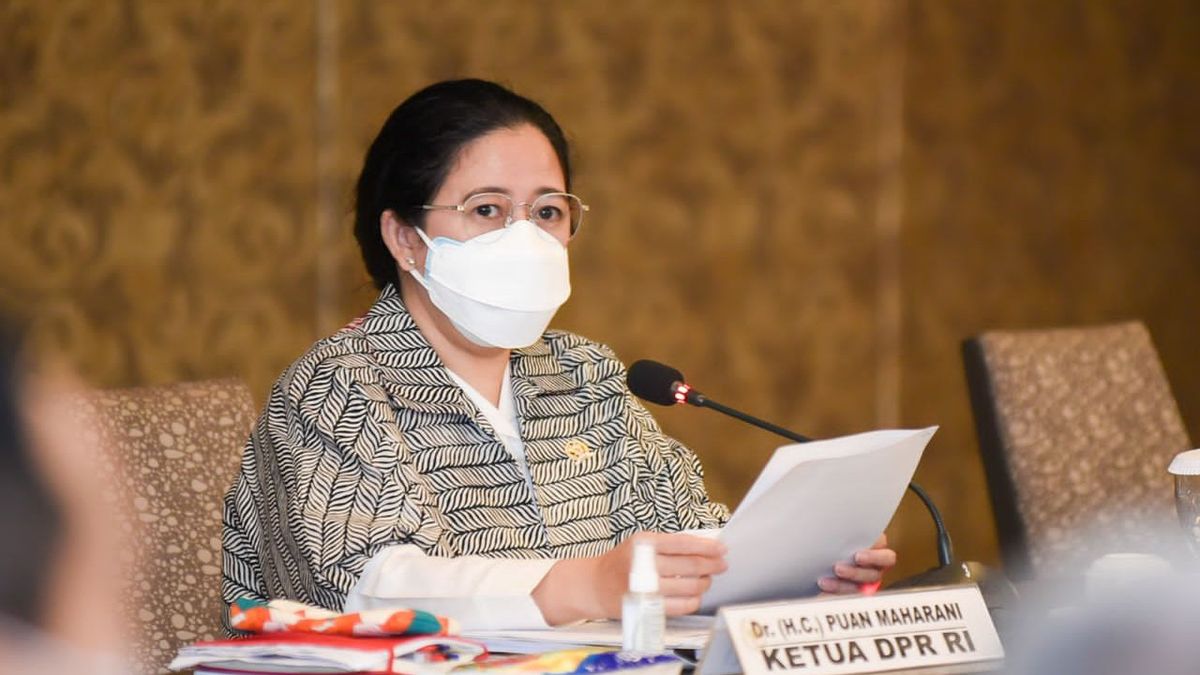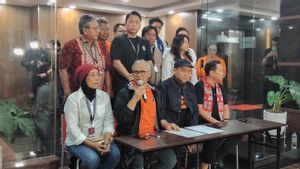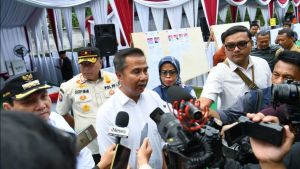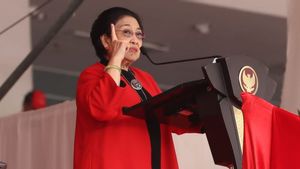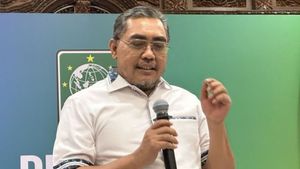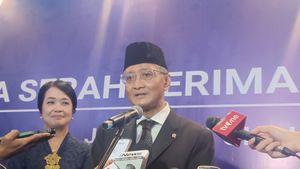JAKARTA - The DPR has approved the revision of Law Number 12 of 2011 concerning the Establishment of Legislation (UU P3), Tuesday, May 24.
The chairman of the DPR RI, Puan Maharani, emphasized that the ratification of the P3 Law today is to follow up on the decision of the Constitutional Court (MK) regarding the Omnibus Law on Job Creation (Ciptaker). parliament. "Yes, we will wait for the president's letter (Surpres) from the president. Then according to the mechanism in the DPR, we will continue to carry out according to the mechanism," said Puan in her statement, Tuesday, May 24.
Puan explained that the revision of the P3 Law was carried out because Law 12/2011, which is a guideline for drafting laws and regulations, did not regulate the Omnibus Law method. Meanwhile, the previous Constitutional Court decision requested that the Job Creation Law be revised. "Earlier, the government's view stated that in the future how the discussion of the P3 Law could be directly carried out by respecting the Constitutional Court's decision. So that later its implementation can run well in the field and in accordance with existing regulations," concluded Puan.
Previously, the Constitutional Court (MK) in one of the decisions of the formal review of Law No. 11 of 2020 concerning Job Creation, stated to suspend all strategic and broad-impact actions or policies. And it is also not justified to issue new implementing regulations related to Law Number 11 of 2020 concerning Job Creation.
This is the decision of point 7 of the Constitutional Court Decision Number 91/PUU-XVIII/2020 which was pronounced on November 25, 2021.
Meanwhile, the two-year period given by the Court is considered relatively short. Therefore, the government needs to immediately design an amendment to the Law on the Formation of Legislation and to improve the substance of the Job Creation Law by involving the public in all stages and processes.
The public in question are groups and communities affected by the provisions of the Job Creation Law. As well as community groups who have an interest in the law that is being drafted. Public participation must meet three conditions. Namely the public's right to be heard, considered, and given an explanation or answer.
The English, Chinese, Japanese, Arabic, and French versions are automatically generated by the AI. So there may still be inaccuracies in translating, please always see Indonesian as our main language. (system supported by DigitalSiber.id)
